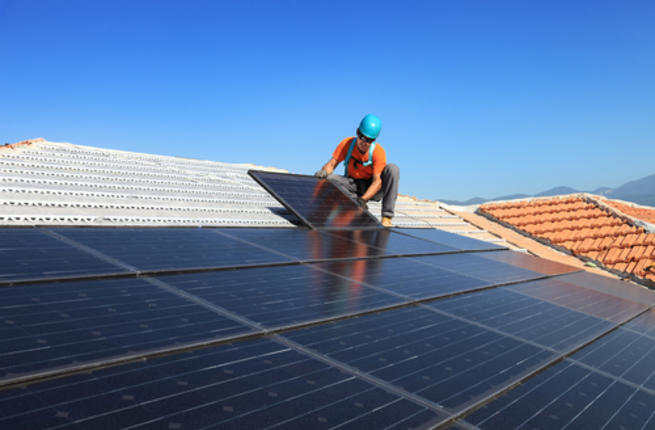Qatar could focus more on the implementation of rooftop solar solutions to address the demand for electricity, especially during the peak season, a top official of Qatar Environment and Energy Research Institute (Qeeri) has said.
“One area where the implementation of solar technologies could accelerate rapidly is that of rooftop solar (solutions),” Dr Khalid al-Subai, acting executive director of Qeeri, told Gulf Times.
Al-Subai explained that in Qatar, “solar intensity and cooling demand track very closely”, especially during the summer months. “Thus, rooftop solar could become very cost-effective in lowering peak electricity demand, which is very important to Qatar’s utilities,” he said. “Dubai recently committed to a target of 100% rooftop solar (solutions) by 2030, and other states within the GCC could well follow Dubai’s lead.”
Solar panels on a smaller scale have been deployed in multiple locations in Qatar, including those installed at the Qatar National Convention Centre and Hamad Bin Khalifa University Student Housing, he observed, noting that many such additional installations are anticipated in seeking to achieve carbon neutrality for the 2022 FIFA World Cup.
According to al-Subai, solar energy technologies have not been adopted in the past because of their relatively high cost.
“However, the situation may be changing. A solar solutions company recently submitted a bid offer to the Dubai Electricity and Water Authority for 5.84 cents (US) per kWh for a 200MW solar plant and 5.44 cents per kWh for a 1GW solar plant, which is remarkably low by historical standards. If this trend continues, renewable energies could really become cost-competitive with electricity produced from fossil fuels and Qatar could experience a much more rapid implementation of solar technologies than indicated by current goals,” he said.
The official also noted that Qatar Solar Technologies (QSTec) was working on the production of materials used in solar cells. “QSTec is a producer of solar-grade polysilicon. QSTec’s state-of-the-art plant in RasLaffan Industrial City is capable of producing 8,000 metric tonnes per year of solar-grade polysilicon. When converted to solar photovoltaic panels, that quantity is roughly equivalent to 1.2GW of installed power on a yearly basis,” he explained.
Al-Subai said QSTec is a partner of SolarWorld AG, one of the world’s largest commercial developers of solar energy technologies. “Solar cells and panels are currently not manufactured in Qatar, but this may change depending on the worldwide demand, prices and other factors.”.
On the deployment of solar technologies in the country, he said Qatar has set a goal to produce 20% of its electricity from solar energy by 2030. “Significant projects are being planned, including a 100MW solar farm project by Qatar General Electricity & Water Corporation (Kahramaa) that will consist of approximately 800,000sqm of photovoltaic panels, currently in the tendering stage. Kahramaa has committed to deploying at least 200MW solar energy by 2020.”
He also pointed out that Qatar Petroleum and Qatar Electricity & Water Company recently signed an agreement to jointly develop solar energy. According to al-Subai, a 15MW solar plant in Duhail should be operational as early as 2018 as the first step in this ambitious project.











